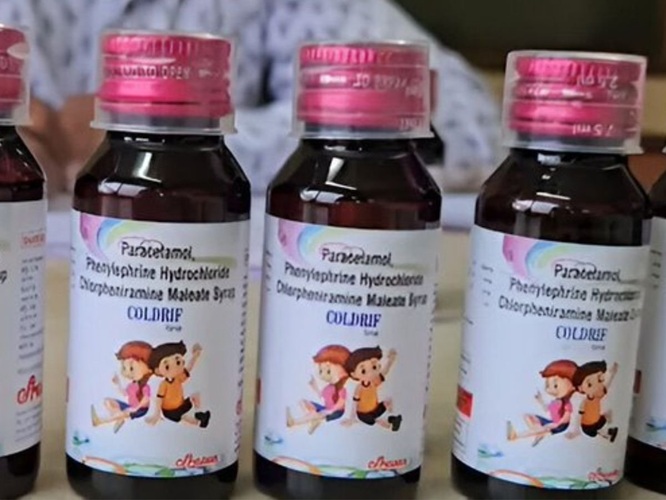New Delhi: The World Health Organization (WHO) has requested clarification from Indian authorities regarding the export of the cough syrup ‘Coldrif’, following reports linking the medicine to the deaths of children, Reuters reported on Wednesday.
The WHO is awaiting confirmation from Indian health officials to determine whether the syrup has been shipped abroad. Depending on the response, the global body may decide if a Global Medical Products Alert for Coldrif is warranted.
Coldrif, manufactured by Sresan Pharmaceuticals in Kancheepuram, Tamil Nadu, has been implicated in the deaths of more than 20 children in Madhya Pradesh and Rajasthan.
On October 2, Tamil Nadu drug control authorities confirmed that a tested sample of Coldrif contained diethylene glycol (48.6% w/v), a toxic substance capable of causing serious health hazards.
In response, several states — including Tamil Nadu, Kerala, Madhya Pradesh, Punjab, and Arunachal Pradesh — have banned the sale of Coldrif cough syrup.
Others, such as Telangana, Karnataka, and Maharashtra, have issued alerts to the public.
Sources from the Health Ministry said the Central Drugs Standard Control Organisation (CDSCO) has recommended canceling the license of Sresan Pharmaceuticals.
However, the final decision rests with the Tamil Nadu Food and Drug Administration (FDA).
ALSO READ: Chakma leader urges UK, India to recognise CHT as Non-Self-Governing Territory
Investigations revealed that the company had been adding 46–48% diethylene glycol (DEG) to the syrup, far exceeding the permitted limit of 0.1%.
DEG is a poisonous chemical known to cause kidney damage. Unbilled containers of DEG were also found at the Sresan factory during CDSCO inspections.
Meanwhile, the Director General of Health Services (DGHS), Dr. Sunita Sharma, issued an advisory to all states and union territories, stressing the careful use of cough syrups in children.
She noted that such medicines should not be prescribed to children under two years and, if necessary, should be administered with strict adherence to dosing, minimal duration, and avoidance of multiple drug combinations.















